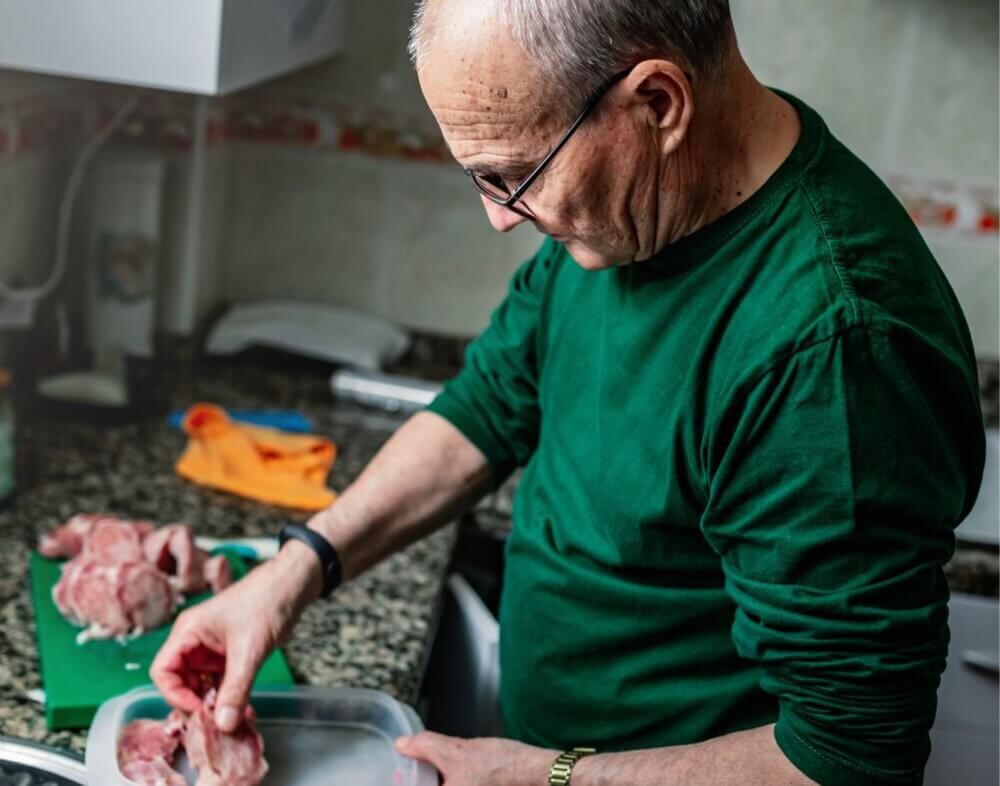The Importance of Nutrition for Care Recipients and Care Professionals

The Importance of Nutrition for Care Recipients and Care Professionals
Caring for yourself and your loved ones can be tough. We know that maintaining a balanced diet is important for your overall well-being. That’s why we want to explore the significance of proper nutrition for both Care Professionals and care recipients in this blog post. We hope to offer helpful tips and resources for planning nutritious meals that are easy to prepare. Additionally, we believe that involving the person receiving care in the meal planning process and promoting hydration can make a big difference. We also understand that incorporating a variety of food groups into our diets and seeking guidance from nutritionists or dietitians is crucial for optimal health.
At Home Instead, we truly care about providing nutritious meals to those in need of care, including our clients in Epsom. We believe that food is not just nourishment but also a way to show love and care. Our dedicated team of Care Professionals can help you or your loved one plan and shop for their meals, ensuring that each client receives the nutrients they need for optimal health.
Examples of nutritious meals for care recipients:
- Breakfast: Porridge with berries and nuts, yoghurt parfait with granola and fruit, eggs with whole-wheat toast and avocado.
- Lunch: Soup and salad sandwich on whole-wheat bread, tuna salad wrap with whole-wheat tortilla and vegetables, leftover dinner.
- Dinner: Grilled chicken breast with roasted vegetables and brown rice, salmon with sweet potato mash and asparagus, lentil soup with whole-wheat bread.
Tips for planning nutritious meals:
- Keep it simple. Opt for easy-to-prepare meals that require minimal effort and time. Choose recipes with fewer ingredients and simple cooking techniques.
- Choose nutrient-dense foods. Prioritise foods that are packed with essential nutrients. Include a variety of fruits, vegetables, whole grains, lean proteins, and healthy fats in the meals to ensure a well-rounded nutritional intake.
- Consider portion sizes. Be mindful of portion sizes to avoid overeating. Use smaller plates and bowls to visually create the illusion of a full plate and ensure that meals are well-balanced with appropriate portions of each food group.
- Involve the person in the process. Encourage the person receiving care to participate in meal planning and preparation. This can help maintain their independence, boost their confidence, and provide them with a sense of purpose and enjoyment.
- Promote hydration. In addition to meals, ensure that the person stays hydrated throughout the day. Offer water, herbal teas, or other low-sugar beverages regularly, and include hydrating foods such as soups, fruits, and vegetables in their meals.
Also, why not have a look at ‘Your Local Pantry’ For a small membership fee of £5.00, members Pantry will be able to purchase a weekly food shop including fresh fruit and vegetables and family favourites to stock up the cupboard and fridge. In fact, Channel 5 recently went down to have a look at what they offer, click ‘here’ to see more.
The importance of variety:
It is important to incorporate a variety of food groups into our diets to ensure that we are getting all the necessary nutrients our bodies need. Each food group offers unique benefits, from fruits and vegetables that provide essential vitamins and minerals to lean proteins that help build and repair tissues. By maintaining a balanced diet, we can support our overall health and vitality.
Seeking professional guidance:
Seeking the guidance of a nutritionist or dietitian can be extremely beneficial in achieving your nutritional goals. These professionals have the expertise to provide personalised advice that is tailored to your specific needs and goals. Whether you are managing a health condition, working on allergies, or simply trying to avoid foods you don’t like, a nutritionist or dietitian can help you make informed choices and create a meal plan that supports your overall well-being.
If you are interested in this option, your Care Professional can assist in finding a suitable expert or even help with writing your shopping list.
At Home Instead, we understand the importance of providing nutritious meals to those in need of care. We believe that food is not just nourishment but also a way to show love and care. Our dedicated team of Care Professionals in Epsom, can help you or your loved one plan and shop for their meals, ensuring that each client receives the nutrients they need for optimal health.
Proper nutrition is essential for both Care Professionals and care recipients. By following the tips provided in this blog post, we can ensure that we are providing ourselves and our loved ones with the nutrients they need to thrive. Additionally, involving the person receiving care in the meal planning process and promoting hydration can make a big difference. If you are interested in seeking professional guidance, your Care Professional can assist in finding a suitable nutritionist or dietitian.
